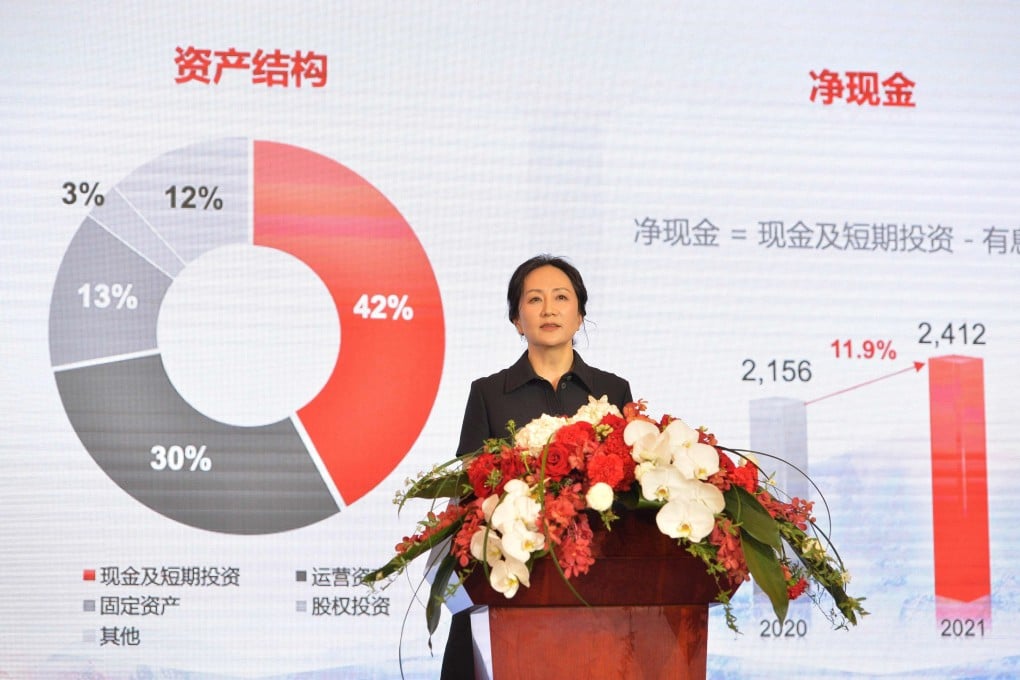Huawei faces uphill struggle to remake itself into an enterprise services giant, analysts say
- One of the new areas Huawei is exploring is smart vehicle systems for carmakers
- The potential for Huawei to use its hardware and software technologies to digitalise operations at coal mines, factories, ports and hospitals is huge

Huawei Technologies Co, which lost nearly a third of its revenue last year in its worst sales performance ever as its smartphone business was hammered by US sanctions, is fighting an uphill battle to reposition itself as a solutions provider for enterprises and governments, analysts say.
The lucrative smartphone business of privately-held Huawei was hit hard after Washington banned it from access to advanced chips two years ago on national security grounds. This came amid escalating US-China tech tensions, which have dashed the Shenzhen-based giant’s hopes of dethroning long-time leaders Apple and Samsung Electronics.
Meng Wanzhou, Huawei’s chief financial officer who returned to China last September after an extradition battle against the US in Canada, said at an event on Monday that the US sanctions were an important factor behind the company’s revenue plunge.
Meng, the daughter of Huawei’s founder and chief executive Ren Zhengfei, said the tech giant will navigate a future via continuous investment in research and development after it spent nearly a quarter of its revenues on R&D in 2021. In terms of individual businesses, the telecoms and network gear giant is betting on some new areas where it is either a total newcomer or up against stiff competition.
One of the new areas Huawei is exploring is smart vehicle systems for carmakers – where it spends a large amount of time telling potential clients that the company has no ambitions to become a carmaker itself. Guo Ping, the rotating chairman, reiterated this again at an event on Monday.
Among its enterprise services segment, which reported 2 per cent revenue growth in 2021, its cloud computing businesses reported rapid growth of 30 per cent to reach 20.1 billion yuan in revenue. However, by comparison the cloud services unit of Alibaba Group Holding, owner of the South China Morning Post, surged 62.5 per cent to US$9.2 billion.
Ivan Lam, a Hong Kong-based analyst at Counterpoint Research, said US sanctions on Huawei have cast a shadow over its potential deals with industry clients. “One of the main reasons why some clients are hesitant to work with Huawei lies in the potential risks involved,” said Lam. “Clients have to root out [the] negative impact in the long run.”
But Lam added he was confident about Huawei’s foray into services like cloud computing given the potential. “Digitisation is a trillion-dollar market and a common, long term trend – not just for China but also globally. A small slice of the pie would be big enough for the company,” Lam said.